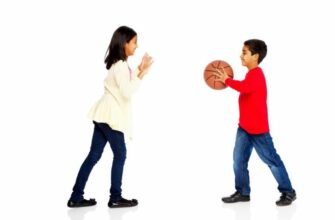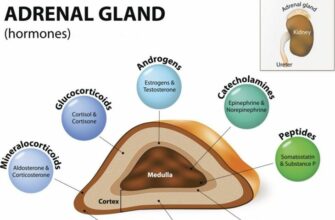In the first few years of life, children learn to smile, laugh, recognize familiar faces, crawl, and walk. While there are many milestones in these early years, a parent hearing their baby’s first words might be one of the most significant and heartwarming. Infants communicate in other ways before they ever begin to talk, but many parents still worry if their child has not started speaking by a certain age. Understanding the timeline and developmental steps of normal speech and language skills can help ease those worries.
Speech and the Infant Brain
Within the first three years, a child’s brain matures at a rapid rate. According to research, during this period, children acquire language skills at an accelerated pace due to the brain’s ability to absorb speech sounds and language patterns. Babies begin to communicate within the first three months of life. When parents and caregivers expose them to speech and language consistently, the child’s ability to develop it increases. While speech and language development vary, pediatric health professionals do follow a timetable to ensure that the child is meeting average milestones. Most children between the ages of 11 and 13 months can say a few words and use communication gestures, like waving “bye-bye.”
Communication Milestones
Developmental milestones for communication occur before a child acquires the skills necessary to carry on a conversation. By the age of four months, infants coo, laugh out loud, recognize their parents’ voices, and learn to fuss to get their caretaker’s attention. Most babies start babbling at this age, making sounds like “puh puh,” “buh buh,” or “muh muh.” Research indicates that babies understand the words for everyday objects as early as six months and begin to intentionally speak by this age. By the end of their sixth month, they generally make gurgling sounds when alone, pay attention to music, and begin to use their voice to express pleasure and displeasure. They also continue to build their repertoire of various speech-like sounds.
First-Year Speech
By the time a child reaches their first birthday, parents may notice they use longer strings of words and a greater variety of short, nonsense syllables. One-year-olds begin to understand that conversation is a two-sided, back-and-forth act. Because babies do not yet have the vocabulary to describe what they are trying to say, they also use body language and voice pitch to communicate with those around them. Bouncing up and down while talking usually indicates excitement, for example. At this age, babies also start to mimic the speech intonations and rhythms of those around them.
Late-Onset Speech
Child experts say that the timing of speech milestones can vary greatly. One child may begin babbling at four months, while others don’t utter these sounds until they’re 10 months old. A 2015 assessment notes that more than 50% of babies speak their first words by the age of 10 months. The same article indicates that 25% of 12-month-old babies have not started talking.
Late Talkers
Children between the ages of 18 and 30 months who understand language, but have limited vocabulary for their age, are “late talkers.” They have normal social, thinking, and motor skills, yet speak very little or not at all. Researchers believe that this condition runs in families. There is also evidence that late talkers are primarily male children who were born at 37 weeks gestation or less or weighed 85% of their optimal weight at birth.
The Pros and Cons of Baby Talk
Baby talk is the source of many debates among child behavior experts. Some advise parents to use proper words for objects. They stress the importance of staying one step ahead of the child’s developmental stage and avoiding adjusting their speech and pronunciation. However, a 2018 study at the University of Edinburgh shows that nine-month-old children pick up language faster when parents and caretakers expose them to certain baby-talk words. Words with repeat sounds, like “night-night” or words that end in “y,” such as “doggy,” helped the child develop talking skills more quickly.
Language Nutrition and Speech
Communicating and interacting with others encourages not only speech development in small children, but also social and cognitive development. “Language nutrition” describes exposure to large amounts of high-quality language that is rich in social interactions. Research shows positive early language environments contribute to a child’s overall health, as well as their future academic success and literacy.
Babies React to Speech in the Womb
Babies begin to react to and learn language before they are born because the neural networks humans need to perceive and comprehend language are already developing. By 24 weeks gestation, a baby can hear and react to sound. By 35 weeks, they begin to learn language. After a child is born, the first six months are crucial for speech. Synaptic growth peaks as early as six months of age, so auditory stimulation is important to ensure proper language development.
Stuttering
Some children exhibit symptoms of stuttering during their speech and language development. This is a normal occurrence unless the stuttering continues for more than three months. A parent may notice that their child prolongs certain sounds or repeats certain syllables, sounds, or words. The use of “um um like” is common. Research shows that stuttering is more prevalent in families with a history of the impediment.
Verbal Development Terms
Though people often use the terms language delay and speech delay interchangeably, they have different meanings. Language is understanding information that another person is communicating. Speech includes the way humans articulate the sounds and words in language and verbalize it. Language delays mean that a child expresses words but can put together only a few words at a time. A child who has a speech delay may have the ability to use words and phrases, but they are hard to understand.

 Home
Home Health
Health Diet & Nutrition
Diet & Nutrition Living Well
Living Well More
More




















